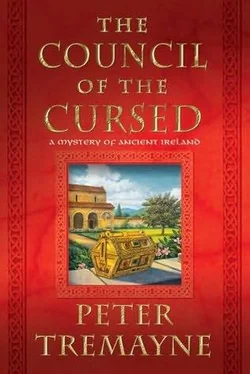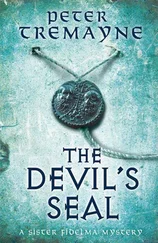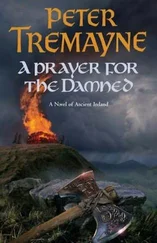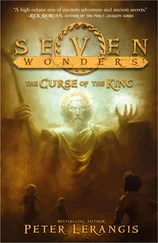Peter Tremayne - The Council of the Cursed
Здесь есть возможность читать онлайн «Peter Tremayne - The Council of the Cursed» весь текст электронной книги совершенно бесплатно (целиком полную версию без сокращений). В некоторых случаях можно слушать аудио, скачать через торрент в формате fb2 и присутствует краткое содержание. Жанр: Исторический детектив, на английском языке. Описание произведения, (предисловие) а так же отзывы посетителей доступны на портале библиотеки ЛибКат.
- Название:The Council of the Cursed
- Автор:
- Жанр:
- Год:неизвестен
- ISBN:нет данных
- Рейтинг книги:4 / 5. Голосов: 1
-
Избранное:Добавить в избранное
- Отзывы:
-
Ваша оценка:
- 80
- 1
- 2
- 3
- 4
- 5
The Council of the Cursed: краткое содержание, описание и аннотация
Предлагаем к чтению аннотацию, описание, краткое содержание или предисловие (зависит от того, что написал сам автор книги «The Council of the Cursed»). Если вы не нашли необходимую информацию о книге — напишите в комментариях, мы постараемся отыскать её.
The Council of the Cursed — читать онлайн бесплатно полную книгу (весь текст) целиком
Ниже представлен текст книги, разбитый по страницам. Система сохранения места последней прочитанной страницы, позволяет с удобством читать онлайн бесплатно книгу «The Council of the Cursed», без необходимости каждый раз заново искать на чём Вы остановились. Поставьте закладку, и сможете в любой момент перейти на страницу, на которой закончили чтение.
Интервал:
Закладка:
Fidelma returned his gaze levelly. ‘If I thought that, and I had the authority to give my vote in the council, I would not give that authority. I would not even attend.’
‘Exactly so. We are invited here merely to register our protest when the decision is announced,’ said the abbot glumly. ‘You may have noticed that we who follow the church of Ailbe, Patrick and Colmcille are in a minority.’
‘If Rome wants to go down that path, why follow them?’ Fidelma asked. ‘Those churches in the east have not done so.’
Abbot Ségdae was unhappy with her choice of words.
‘Careful, Fidelma, lest you be accused of uttering heresy,’ he warned. ‘Rome should still be our centre, for was it not the great apostle Peter who chose Rome as the place where the church of Christ would be founded? Did not Christ tell him that he was the person who would form His church?’
‘So why argue with Rome?’ interrupted Eadulf. ‘Why not accept their dictum and make life easier?’
Abbot Ségdae turned to him with a frown. ‘Rome is but an erring parent, Eadulf. We follow the original precepts of the Founding Fathers of the Faith, the rites and rituals, the dating of our celebrations. It was not we who changed, but Rome who started to alter her ways and follow other paths.’
‘Isn’t that exactly what the churches in the east claim? They say that the churches there follow the orthodox rites that Rome rejected.’
‘Their split was over politics, not theology.’
‘How so?’ demanded Eadulf.
‘The eastern churches split when the Roman Empire itself split; when the Emperor made his capital at Byzantium and called it after his own name Constantinople. The separation between Rome and Constantinople caused the two adherents of the Faith to move apart.’
Fidelma nodded in agreement. ‘Just as these new ideas of Rome are moving it apart from us in the west. Rome rejected the teachings of Pelagius, it expelled Arian and now it is at odds with monothelitism. One day this movement for segregation of the sexes and celibacy will probably be accepted as Rome’s teaching. Where will Rome’s constant revision of the Faith and its rites end? One day, we may find no connection at all with the original creed of the Founding Fathers of the Faith.’
‘I had no idea that you thought so deeply on such matters, Fidelma,’ the abbot said.
‘I do not wear my ideas on the sleeve of my robe, Ségdae,’ she replied softly. ‘But that is not to say that I do not have them. I believe the Faith is for the individual to accept or reject; it is not for someone else to tell them what they should believe or how to do so. My public concern is for the law; for truth and justice.’
Eadulf coughed nervously. Fidelma glanced up, realising that many of the brethren were now filing out of the hall.
‘You will forgive us now, Ségdae, for we must continue our task,’ she said, rising.
After they left the refectory, Eadulf whispered: ‘Is it wise to be so outspoken?’
‘Perhaps not,’ she replied. ‘Yet I cannot repress my thoughts entirely. It is not my nature.’
‘Of all the places in the world, I do not think this is the one for an open discussion on theology.’
She looked at him and then started to chuckle.
Eadulf was about to open his mouth to protest when she explained: ‘I do not laugh at you, Eadulf. It is the thought that this great abbey, with its council on the future of the Church, is not a place for a discussion on theology. If not here, then where?’
‘It can only be in a place where minds are free to receive ideas so that they can be discussed,’ Eadulf said grumpily. ‘Where minds are already made up, no discussion and exchange of ideas can thrive.’
Fidelma reached out to touch his arm. ‘Sometimes I forget how wise you can be, Eadulf,’ she smiled. ‘I will be more attentive as to how I express my thoughts in future. Now, let us find Brother Gebicca.’
Brother Gebicca was typical of all the physicians and apothecaries that Fidelma and Eadulf had ever known. He was elderly, but moved with a swift decisive energy as he bent his spare frame over the pestles and jars arrayed on his workbench in the malodorous rooms that he inhabited. He glanced up as they entered and his face registered surprise as he saw Fidelma followed by Eadulf.
‘You are a woman!’ he frowned.
‘You are very observant, Brother Gebicca,’ she replied with humour. ‘That is essential in an apothecary.’
The physician made a cutting motion with his hand.
‘This abbey has been forbidden to women,’ he said.
‘You were not at evening prayers in the chapel last night?’ she asked.
The apothecary was still irritable. ‘Why should I be? I have plenty to occupy my time and a dispensation from the bishop to concentrate on the health of the brethren. What are you doing here?’
‘Had you attended then you might have heard the bishop announce our presence and purpose here. We are investigating the death of Abbot Dabhóc.’
Brother Gebicca’s eyes narrowed slightly for a moment. Then his expression eased.
‘Ah. Brother Chilepric did say something about your coming.’ He rose from the stool before his workbench and went to splash his hands in a bowl of water before wiping them on a linen cloth.
‘Now, what is it that you want of me?’
‘To tell us what you know of the death of Abbot Dabhóc.’
Brother Gebicca glanced from Fidelma to Eadulf and back again, then gestured for them to follow him through a door that led out into the herb gardens behind the apothecary. There were a couple of low stone bench-like seats, where they sat. The area was bathed in the early afternoon summer sunshine, which was full of the different scents from the herbs and flowers in the garden. It was comforting, almost soporific to sit in the natural warmth after the cold interior of the abbey.
‘On the night of the killing of Abbot Dabhóc, we understand that you were summoned to Bishop Ordgar’s apartment by Brother Sigeric?’ Eadulf opened the questions.
‘Brother Sigeric was acting on the instructions of Bishop Leodegar who was already attending the scene,’ Brother Gebicca confirmed pedantically.
‘On reaching Ordgar’s chamber, who did you attend to first?’
‘I first confirmed that the Hibernian abbot, Dabhóc, was beyond help. That was easy enough. The back of his skull had been smashed in with a heavy force. Then I turned to the unconscious Briton, Abbot Cadfan. He, too, had been struck on the head but I saw that, although there was a cut and abrasion and the swelling had already started, he still lived. So then I moved on to Bishop Ordgar.’
‘And what did you find?’ encouraged Fidelma.
‘He was lying on his bed, semi-conscious. He was mumbling a great deal and incoherent. His breath smelled strongly of alcohol.’
‘You mean that he was drunk?’ asked Eadulf.
‘I believed so at first, but then I came to the conclusion that he had been drugged.’
‘Why was that?’
‘The state of the eyes, the tongue and lips. I have practised the healing arts for many years and know the difference between an over-indulgence in alcohol and the effects of certain herbs that can produce a similar stupor.’
‘So what did you do?’
‘I told Bishop Leodegar that he would get no sense from either Cadfan or Ordgar for a while. My estimation was that it would take at least a day for both men to recover sufficiently to explain what had happened. Bishop Leodegar, at my suggestion, had Abbot Cadfan carried back to his own chamber where I washed and dressed his wound, applying a poultice to defuse the swelling and heal the cut. Then I left someone to watch him. I was pleased with his progress; he is a strong man and has healed well.’
Читать дальшеИнтервал:
Закладка:
Похожие книги на «The Council of the Cursed»
Представляем Вашему вниманию похожие книги на «The Council of the Cursed» списком для выбора. Мы отобрали схожую по названию и смыслу литературу в надежде предоставить читателям больше вариантов отыскать новые, интересные, ещё непрочитанные произведения.
Обсуждение, отзывы о книге «The Council of the Cursed» и просто собственные мнения читателей. Оставьте ваши комментарии, напишите, что Вы думаете о произведении, его смысле или главных героях. Укажите что конкретно понравилось, а что нет, и почему Вы так считаете.











